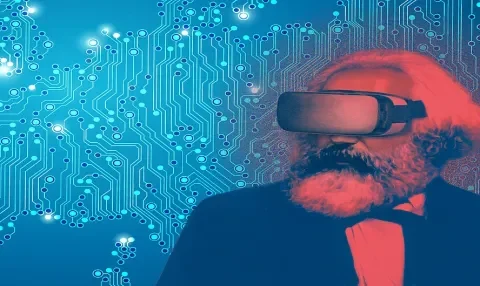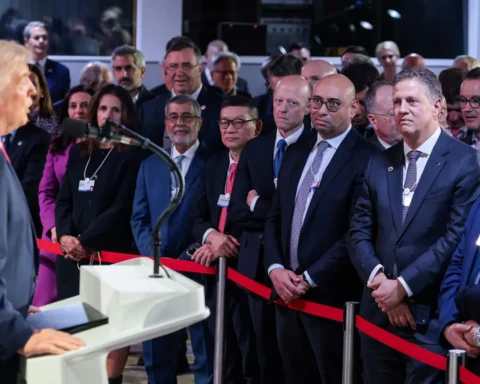When was the last time you watched a movie in an actual movie theater?
It seems like a banal question — doesn’t everyone go to the movies?
That used to be the case. When I was in high school and even in college, I took time to watch movies at the local theater whenever I could. I didn’t have my own VCR (DVD player) until I was 25 years old, and even then, I rarely borrowed movies from video stores (or the library).
I loved going to the movie theater. Sometimes I would see two movies a day, when several second-run theaters started opening up. The public could watch a blockbuster movie, just a few weeks later, at a cheaper price. I remember paying as little as $1.00 to $2.50 a movie, and the concessions were cheap, too.
I stopped going to movies for the same reason I stopped watching T.V.: the Internet.
After the 2016 election, I spent more time writing blog posts, articles, and social media. I didn’t need T.V. to get news because of the Internet, too.
But movies were still profiting at the box office, hitting their peak in 2018. Just because the Internet, YouTube, and streaming services were growing did not necessarily mean the movie business or the box office hustle were headed for oblivion.
In fact, social media has increased general interest and discussion on movies. Facebook, Twitter (then X), and Instagram have repeated posts, messages, and inquiries about movies, production lore, actors, and the frequent questions that list ten to twenty movies, and then ask: “Only one, two, or three can stay.”
Movies: their stories, the directors, the actors still inspire and enthrall.
Yet today, the movie theater is facing decline. Why?
A friend of mine who worked for numerous movie studios, even serving as a personal assistant for many movie stars, gave a dour assessment of the movie industry:
“The whole movie business has completely died.”
Why such a dire assessment?
“They all suck. You are not missing anything [by not going to the movies]. They burned down [Pacific] Palisades, and then the movie industry stopped making anything but propaganda movies. It’s a mess.”
When did the tide turn against the movie house?
“The celebrities are completely irrelevant now. They don’t sell a movie at all now. No [one] cares about any of them. Many are taking very low paid movies because they give high overhead in terms of lifestyle [like health insurance], and many are not making any movies now. Pretty interesting times.”
O.K., movies suck and no one cares about them anymore, but mere assertions are not an explanation.
Has the tech revolution finally gutted the industry for good? Big studios don’t hold the monopoly anymore. It’s easier to produce content. Anyone can make movies with smartphone cameras and broadcast their work on social media at little cost.
A similar tech revolution occurred with television, too, but movie theaters survived, even thrived! So, the issue isn’t technology. What has happened to the movie industry, in connection with the movie theaters themselves?
It’s about quality, vision, and character.
The quality of the current movie fare is garbage.
The box office had its worst October sales in thirty years in 2025! Sure, there aren’t a lot of movies, because of the strikes and the health scare setbacks, but the quality of the movies has gone down considerably. Hollywood is cranking out movies that people simply do not want to watch anymore.
Sure, a whole slew of movies are coming out – but all of them are repeats, retreads, and sequels. Where’s the imagination and innovation? Who wants to see yet another iteration of Kung Fu Panda? Granted, Top Gun’s 35-year anniversary did well, but mostly because of stellar marketing from Tom Cruise, who understands and respects his audience.
Less risk is the likely explanation for the repeat performances. Movie-making has gotten more expensive. Actors are demanding more money for the same work they did ten or twenty years ago. The movie experience itself has turned into a more elite affair, with movie tickets now averaging $16.00, and some are charging even more! Long gone are the second-run theaters that I frequented.
The actors bear the blame for Hollywood’s decline in other ways, too.
They have always been liberal, but we would put up with them because we wanted to see their great story-telling, and they learned to keep their politics to themselves (for the most part).
Today, the actors have plunged deep into politics (consider veteran actor Robert De Niro and his repeated, cranky attacks on President Trump). They insist on having an opinion and making sure you know it. The movie studios and executives have increased shoving their propaganda in our faces (think about all the LGBT themes in recent Disney flops), and the public is tired of it. The persistent DEI themes pervasive in today’s movie output were too much for the general public.
It’s also easier to get movies via Netflix, Disney+, and other streaming services. Younger generations are learning about all the old but good movies, which are also much easier (and cheaper) to access compared to ten or twenty years ago. Consumers can even rent movies at the local library and watch movies for free on YouTube.
Now that we can get the content other ways, without the high costs, the demanding movie moguls, and the eccentric celebrities, the entertainment elites are recognizing that their days are numbered. But they still think everyone owes them something, and they believe that they should be the final arbiters of what is good and true in the culture.
British comedian Ricky Gervais magnificently popped their pretentiousness at the 2020 Golden Globe Awards ceremony:
“No one cares about movies anymore. No one goes to the cinema.”
It was perfect timing, right before COVID shut down the theaters.
To illustrate how irrelevant actors have become, the senior pastor of my local church interviewed veteran actor Jeremy Piven after a movie screening at the Mann Chinese Theater earlier this year. Most of the church congregation didn’t react when the pastor mentioned Piven. They never heard of him!
Indeed, the movie industry’s decline is unmistakable. There is no worse sign of this than the tragic failure of director Francis Ford Coppola’s passion project Megalopolis. He put all his time, energy, and treasure into this bomb. Now he’s auctioning prized personal possessions to defray the debt.
Some theaters are finding ways to restore their audiences. Quentin Tarantino is re-releasing his two-part exploitation epic Kill Bill as one complete movie. Other theaters have re-released popular and cult classics like Back to the Future and Clue, favorites of the Gen X and the younger Baby Boomer set. The repeat of old movies just proves that Hollywood has given up. They have lost the magic, so they have to go back in time to resurrect quality entertainment without all the wokeness.
With the intersection of new technology, liberal elitism, bad timing, natural disasters, changing tastes, and ease of creating content, the movie industry has been turned on its head. Slowly, they realize there is no going back, aside from arthouse fans, like the rich elites who continue to attend plays on Broadway or watch opera.
Source: https://www.americanthinker.com/articles/2025/11/the_decline_and_fall_of_the_movie_industry.html






